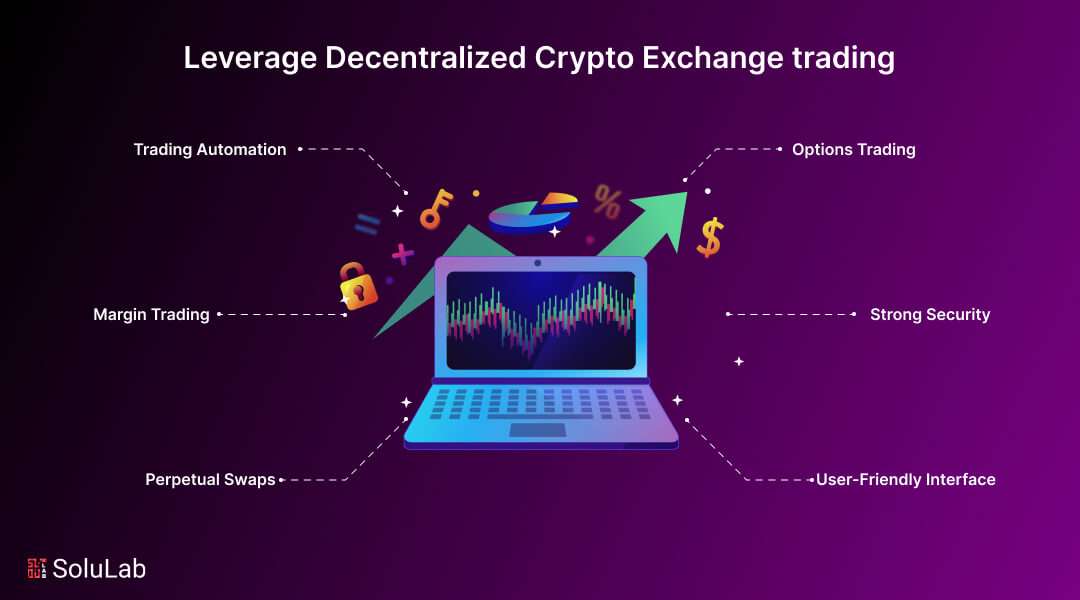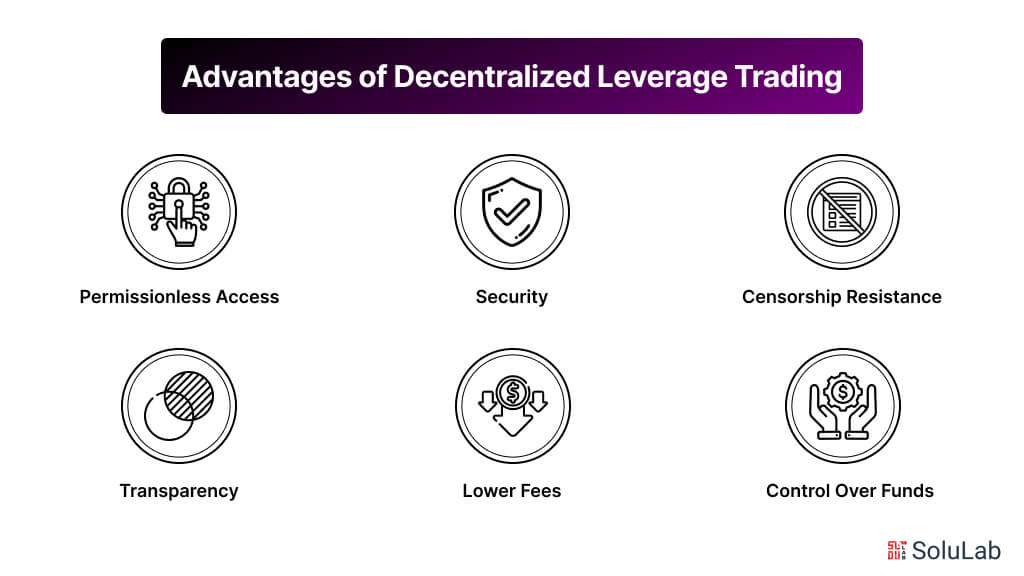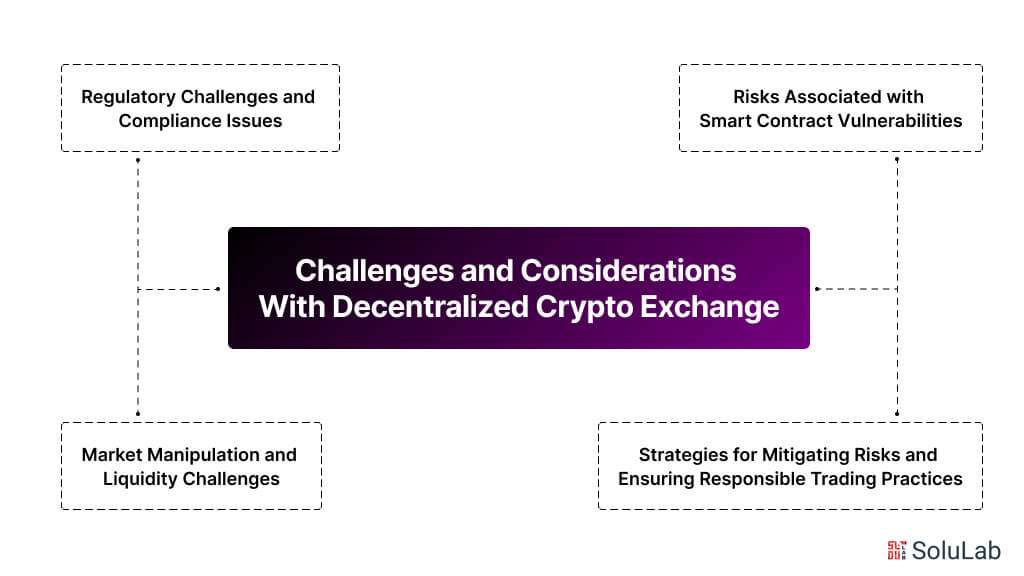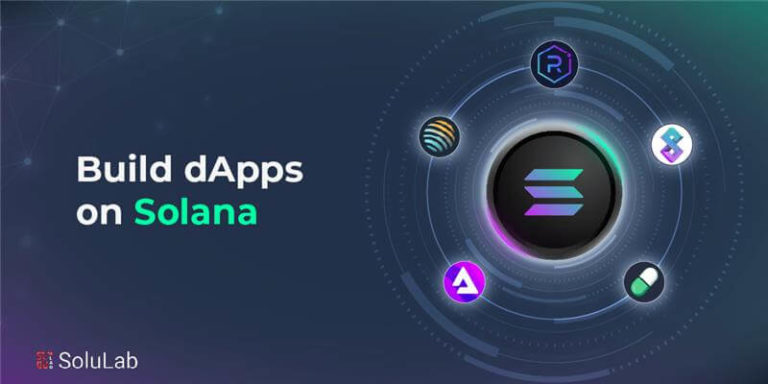
Our strategies for trading and investing in these digital assets are always changing along with the cryptocurrency industry. One of the most recent and exciting advancements in cryptocurrency trading is the advent of decentralized exchanges or DEX. How can you improve the way you trade? Leveraged trading that is decentralized allows you to make more money.
Let’s learn more about how decentralized leverage trading exchanges operate, as well as about their benefits, drawbacks, and potential to influence financial technology in the future.
What is DEX Trading?
Decentralized exchange, or DEX for short, is a direct cryptocurrency trading platform that eliminates the need for middlemen to manage money transfers. DEXs employ blockchain-based smart contracts to replace traditional institutions in the facilitation of asset exchange. By doing away with the opaqueness of conventional financial systems, this strategy fully transparently processes transactions.
DEXs minimize centralization issues and counterparty risk in the crypto ecosystem by eschewing third-party wallets. Because of their permissionless composability, DEXs are a crucial component of decentralized finance (DeFi) and offer a strong platform for the creation of sophisticated financial products.
By borrowing money, traders can increase their exposure to an asset through leverage. This raises the possibility of losses even as it might enhance possible gains. Leverage trading usually includes middlemen like banks or brokers in conventional finance. Decentralized leverage trading, on the other hand, allows users to gain access to leveraged positions using blockchain-based smart contracts.
Important Features of DEX Leverage Trading Platforms
- Trading Automation: The platform should provide configurable trading automation tools that let traders execute pre-planned deals quickly and effectively without requiring human assistance.
- Margin Trading: One should be able to use leverage for a variety of assets, including forex, commodities, and cryptocurrencies. Margin needs and risk management techniques should be made evident on the platform.
- Perpetual Swaps: In order to facilitate traders’ use of leverage, the platform ought to accommodate perpetual contracts for a variety of assets that have no ends. There should be easy access to clear information about financing fees and related expenses.
- Options Trading: Traders should be able to use leverage to purchase and sell options contracts on a variety of assets. The platform must to give precise details on premiums and related expenses.
- Strong Security: Smart contracts should be used in the platform’s construction to enable automated transactions on a secure blockchain network. User data and payments are further protected through the use of encryption, two-factor authentication, and frequent security assessments.
- User-Friendly Interface: Trading costs, margin requirements, and other important information should all be made clear on the platform through an easy-to-use interface. To help new users, there should also be tutorials and educational materials available.
Advantages of Decentralized Leverage Trading

Businesses might gain many advantages from the development of decentralized leverage trading crypto exchanges in the following ways:
-
Permissionless Access
Entry obstacles are typically imposed by traditional banking systems, which demand that users fulfill specific requirements or undergo an extensive onboarding procedure. One of the main benefits of DEX is that it provides permissionless access, enabling anybody with a cryptocurrency wallet and an internet connection to begin trading right away. Because of its accessibility, financial markets become more democratic, enabling those who would not have had access to conventional finance because of socioeconomic, regional, or legal limitations.
-
Security
In the financial industry, where money loss or theft can have disastrous repercussions, security is crucial. Decentralized exchange with leverage runs on blockchain networks and protects user funds and transactions via cryptographic methods. Blockchain transactions are resistant to fraud and manipulation because they are transparent and unchangeable. Furthermore, because a decentralized leverage trading crypto exchange has no dependence on centralized servers, it is less vulnerable to single-point-of-failure hacking assaults.
-
Censorship Resistance
Exchanges for decentralized leverage trading are immune to censorship, which means that no central authority can halt or reverse transactions on them. Financial intermediaries, including banks and governments, have the authority to impose transaction limitations or freeze account balances in the context of conventional finance. By enabling peer-to-peer trading between users without the intervention of third parties, decentralized exchanges remove this danger. This resilience to censorship is especially useful in areas where people may look for alternatives to traditional banking services due to autocratic regimes or shaky financial systems.
-
Transparency
Blockchain technology, which logs all transactions on a public ledger accessible to everyone with an internet connection, is based on the fundamental idea of transparency. This transparency is used by a decentralized leverage trading cryptocurrency exchange to give consumers instant access to trading information, including trade history, order book depth, and market liquidity. Because users are able to independently confirm the correctness and fairness of transactions, this openness increases trust and confidence in the reliability of the trading platform. Since all trading activity is available to the public, the openness of decentralized exchanges also lowers the possibility of insider trading and manipulation of the markets.
-
Lower Fees
Decentralized leverage trading usually charges less than those for centralized trading. This is due to the fact that decentralized exchanges function without the use of middlemen like clearinghouses or brokers, who frequently charge for their services. Decentralized exchanges, on the other hand, do away with the need for middlemen by using automated smart contracts to enable trading directly between users. Users benefit from increased profit margins, decreased trading costs, and more control over their financial activities as a consequence.
-
Control Over Funds
Self-custody—a decentralized financial concept that grants users complete control over their cash at all times—is one of its core tenets. Users may trade straight from their cryptocurrency wallets on decentralized leverage trading platforms, eliminating the need to transfer money to a centralized exchange or give it to a third party. This removes the possibility of money being lost or stolen as a result of fraud, insolvency, or exchange hacking. Furthermore, consumers may take their assets out whenever they want without being constrained by centralized exchanges’ withdrawal policies or waiting periods because they still have authority over their money. In the decentralized finance ecosystem, this financial sovereignty and autonomy are crucial to preserve.
Impact on Traditional Financial Systems
Decentralized crypto exchanges (DEXs) with leverage trading have the potential to disrupt traditional financial systems in several ways:
- Reduced Dependence on Intermediaries: By enabling peer-to-peer trading without the need for intermediaries like banks or brokers, DEXs reduce reliance on centralized institutions. This could lead to disintermediation and a shift in the balance of power within the financial industry.
- Increased Accessibility: DEXs provide access to financial services for individuals who are underserved or excluded by traditional banking systems. This includes people in regions with limited banking infrastructure or those who face barriers to entry in traditional financial markets.
- Global Market Access: With decentralized exchanges, traders can access global markets 24/7, regardless of their location. This facilitates cross-border transactions and removes barriers to international trading that may exist in traditional financial systems.
- Innovation and Competition: The emergence of DEXs fosters innovation and competition within the financial industry. Traditional financial institutions may be forced to adapt and innovate to remain competitive in the face of decentralized alternatives.
Challenges and Considerations With Decentralized Crypto Exchange 
Decentralized exchanges with leverage and decentralized leverage trading platforms offer exciting opportunities for investors and traders, but they also present several challenges and considerations that must be carefully addressed.
Regulatory Challenges and Compliance Issues
- Uncertain Regulatory Landscape: The regulatory environment surrounding decentralized finance (DeFi) and leverage trading is still evolving, leading to uncertainty for market participants and platform operators.
- Know Your Customer (KYC) and Anti-Money Laundering (AML) Compliance: Regulators may require decentralized exchanges with leverage to implement KYC/AML procedures to mitigate financial crime risks, despite the pseudonymous nature of blockchain transactions.
- Compliance with Securities Laws: Some jurisdictions may classify leveraged trading products as securities, subjecting decentralized platforms to additional regulatory requirements and potential legal challenges.
Risks Associated with Smart Contract Vulnerabilities
- Smart Contract Risks: Decentralized leverage trading platforms rely on smart contracts to execute trades and manage collateral. Smart contract vulnerabilities, such as coding errors or malicious exploits, could lead to significant financial losses for users.
- Auditing and Security: Conducting thorough security audits of smart contracts and implementing robust security measures are essential to mitigate the risks of exploitation and ensure the integrity of the platform.
Market Manipulation and Liquidity Challenges
- Market Manipulation: Decentralized markets are susceptible to manipulation and insider trading, posing risks to investors and the integrity of the platform. Without proper oversight and monitoring mechanisms, malicious actors may exploit liquidity pools and engage in fraudulent activities.
- Liquidity Challenges: Ensuring sufficient liquidity is essential for the efficient functioning of decentralized leverage trading platforms. Low liquidity can lead to slippage, increased transaction costs, and limited trading opportunities, negatively impacting user experience and market stability.
Strategies for Mitigating Risks and Ensuring Responsible Trading Practices
- Transparency and Disclosure: Platforms should provide transparent and comprehensive information about their operations, including risk factors, fees, and trading mechanics. Educating users about the risks associated with leverage trading is crucial for promoting responsible trading practices.
- Risk Management Tools: Implementing risk management tools, such as stop-loss orders and margin requirements, can help users manage their exposure to market volatility and prevent excessive losses.
- Community Governance: Decentralized leverage trading platforms can benefit from community-driven governance mechanisms that empower users to participate in decision-making processes and enforce best practices.
- Collaboration with Regulators: Working closely with regulators and policymakers to address regulatory concerns and ensure compliance with applicable laws and regulations is essential for the long-term viability of decentralized exchanges with leverage.
Addressing these challenges and considerations requires a collaborative effort from platform operators, developers, regulators, and users to build a resilient and trustworthy ecosystem for decentralized leverage trading. By implementing robust security measures, promoting transparency, and fostering responsible trading practices, decentralized platforms can mitigate risks and maximize the potential of leverage trading in decentralized finance.
Opportunities for Innovation and Growth
The intersection of decentralized finance (DeFi) and leverage trading opens up a myriad of opportunities for innovation and growth. Here’s a closer look at some of the key areas where decentralized leverage trading platforms can drive innovation:
Exploration of Potential Innovations
- Algorithmic Trading Strategies: Decentralized leverage trading platforms can leverage algorithmic trading strategies to automate trading decisions and optimize trading outcomes. Smart contracts can execute predefined trading strategies based on market conditions, technical indicators, and risk parameters, offering users access to sophisticated trading tools.
- Decentralized Margin Lending: Introducing decentralized margin lending protocols allows users to borrow assets against their existing holdings, enabling leveraged trading without relying on centralized intermediaries. Decentralized margin lending platforms can provide liquidity to traders while earning interest on deposited assets, creating a new avenue for passive income generation.
- Cross-Chain Interoperability: Enhancing cross-chain interoperability enables seamless asset transfers and trading across different blockchain networks. Decentralized leverage trading platforms can leverage interoperability solutions to access a broader range of assets and liquidity pools, improving market efficiency and user experience.
Opportunities for Financial Inclusion and Empowerment
- Access to Global Markets: Decentralized leverage trading platforms democratize access to financial markets, allowing users worldwide to participate in leveraged trading without geographic restrictions or intermediaries. This opens up opportunities for individuals in underserved or unbanked regions to engage in wealth creation and financial empowerment.
- Reduced Barriers to Entry: By eliminating barriers to entry, such as account minimums, credit checks, and geographic limitations, decentralized leverage trading platforms foster financial inclusion and empowerment for individuals who may have been excluded from traditional financial systems. Users can access leverage trading with minimal capital requirements, leveling the playing field and promoting economic equality.
Collaborations Between Traditional Finance and Decentralized Platforms
- Innovation Synergies: Collaboration between traditional financial institutions and decentralized platforms can drive innovation and adoption in both sectors. Traditional finance brings expertise in regulatory compliance, risk management, and market infrastructure, while decentralized platforms offer agility, transparency, and innovation in fintech solutions.
- Hybrid Financial Products: Collaborative efforts between traditional finance and decentralized platforms can lead to the development of hybrid financial products that combine the best features of both worlds. For example, tokenized securities and synthetic assets issued on decentralized platforms enable fractional ownership and 24/7 trading, while complying with regulatory requirements and investor protections.
- Market Liquidity and Integration: Integrating decentralized leverage trading platforms with traditional financial markets enhances liquidity and market depth, benefiting both retail and institutional traders. Collaboration between centralized exchanges, liquidity providers, and decentralized platforms facilitates seamless asset transfers and trading, driving innovation and adoption across the financial ecosystem.
Conclusion
Crypto exchange systems that combine decentralized finance with leverage trading provide consumers with unparalleled access to financial markets while adhering to decentralization, security, and transparency ideals. While problems persist, continued innovation and growth are paving the path for a future in which decentralized finance is crucial to creating the global financial environment. As the DeFi exchange market matures, the creation of decentralized leverage trading crypto exchanges is set to open up new avenues of opportunity and revolutionize the way we approach finance.
For businesses and entrepreneurs looking to capitalize on the opportunities presented by decentralized crypto exchanges, SoluLab offers comprehensive development services tailored to meet their unique needs. As a leading decentralized exchange development company, SoluLab specializes in building secure, scalable, and feature-rich decentralized trading platforms that empower users to trade with confidence. Whether you’re launching a new decentralized exchange or enhancing an existing platform, SoluLab’s team of experienced developers and blockchain experts can help you navigate the complexities of decentralized finance and leverage trading. Contact us today to learn more and embark on your journey towards building the future of finance.
FAQs
1. What is decentralized leverage trading, and how does it differ from traditional trading?
Decentralized leverage trading allows users to trade financial assets with borrowed funds, amplifying potential gains or losses. Unlike traditional trading, which often relies on centralized intermediaries like banks or brokers, decentralized leverage trading occurs directly between users on blockchain-based platforms, offering greater transparency, accessibility, and control over one’s funds.
2. What are the risks associated with decentralized leverage trading?
While decentralized leverage trading offers opportunities for enhanced returns, it also carries inherent risks, including the potential for significant losses. Factors such as market volatility, smart contract vulnerabilities, and liquidity challenges can expose traders to heightened risks. It’s essential for users to conduct thorough research, implement risk management strategies, and only trade with funds they can afford to lose.
3. How can decentralized leverage trading contribute to financial inclusion?
Decentralized leverage trading platforms democratize access to financial markets by removing barriers to entry, such as geographic restrictions, account minimums, and credit checks. This enables individuals worldwide, including those in underserved or unbanked regions, to participate in leveraged trading and wealth creation, promoting financial inclusion and empowerment.
4. What regulatory considerations should users be aware of when engaging in decentralized leverage trading?
Users should be aware of the regulatory landscape surrounding decentralized finance (DeFi) and leverage trading, which varies by jurisdiction. Regulatory concerns may include compliance with Know Your Customer (KYC) and Anti-Money Laundering (AML) regulations, securities laws, and investor protection measures. It’s important for users to stay informed about regulatory developments and ensure compliance with applicable laws and regulations.
5. How can SoluLab assist businesses interested in developing decentralized crypto exchanges with leverage trading features?
SoluLab offers comprehensive development services for businesses looking to build decentralized crypto exchanges with leverage trading capabilities. Our team of experienced developers and blockchain experts can design, develop, and deploy secure, scalable, and feature-rich trading platforms tailored to your specific requirements. Whether you’re launching a new exchange or enhancing an existing platform, SoluLab provides end-to-end support to help you navigate the complexities of decentralized finance and leverage trading.






